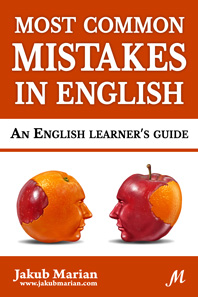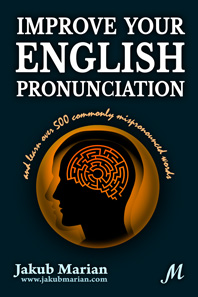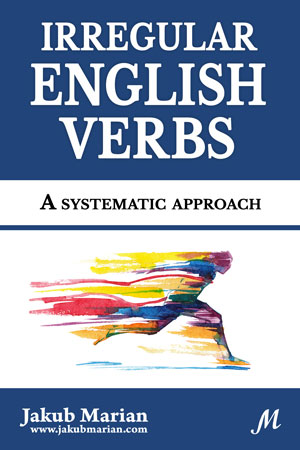 |
(An) information – is there an article?
The word “information” is an uncountable noun (also called mass noun) in English, just like “smoke” or “rice”. This means that it is (...)
January 4, 2019 – Jakub Marian – English
|
 |
“I know English” or “I speak English”?
Long story short, if you want to say that you can express yourself in English and/or that you can communicate in English, the natural way (...)
December 10, 2018 – Jakub Marian – English
|
 |
English nouns that are only used in the plural
There are a few nouns in English that are only used in the plural. They may be confusing for English learners if the equivalent expression (...)
November 11, 2018 – Jakub Marian – English
|
 |
Final consonant doubling in English
As you surely know, the final consonant of some verbs gets doubled when the suffix -ing or -ed is added, e.g.
stop: stopping, (...)
October 9, 2018 – Jakub Marian – English
|
 |
Origin of the word “kid”
The noun “kid” in contemporary English is mostly used to informally refer to a child, e.g. “she’s just a kid” or “only 90s kids will (...)
May 12, 2018 – Jakub Marian – English
|
By the way, have you already seen my brand new web app for non-native speakers of English? It's based on reading texts and learning by having all meanings, pronunciations, grammar forms etc. easily accessible. It looks like this:
 |
English words that change their meaning depending on stress placement
English orthography is often ambiguous. For example, the word “read” can be pronounced either /riːd/ (“reed”) or as /rɛd/ (“red”) (...)
November 27, 2017 – Jakub Marian – English
|
 |
Present subjunctive in English
The present subjunctive is a really easy mood to use: it is always identical to the infinitive in English, and speakers of other Germanic (...)
November 1, 2017 – Jakub Marian – English
|
 |
“Criteria” – singular or plural?
The media seem to have been plagued with expressions like “the criteria is” lately. Unfortunately, such expressions are incorrect because (...)
October 16, 2017 – Jakub Marian – English
|
A small but necessary interruption: This website does not contain any ads and is completely dependent on the support of its readers. If you enjoy reading articles here, please, consider helping by using my web app for English learners.
 |
‘In formal context’ vs. ‘in a formal context’ in English
“Context” can be a countable as well as an uncountable noun. When you speak about context in general, the word is usually uncountable, (...)
October 6, 2017 – Jakub Marian – English
|
 |
So, thus, therefore, and hence in English
Since you are reading this article in English, the odds are you already know what the conjunction “so” means. You probably also know that (...)
October 5, 2017 – Jakub Marian – English
|




